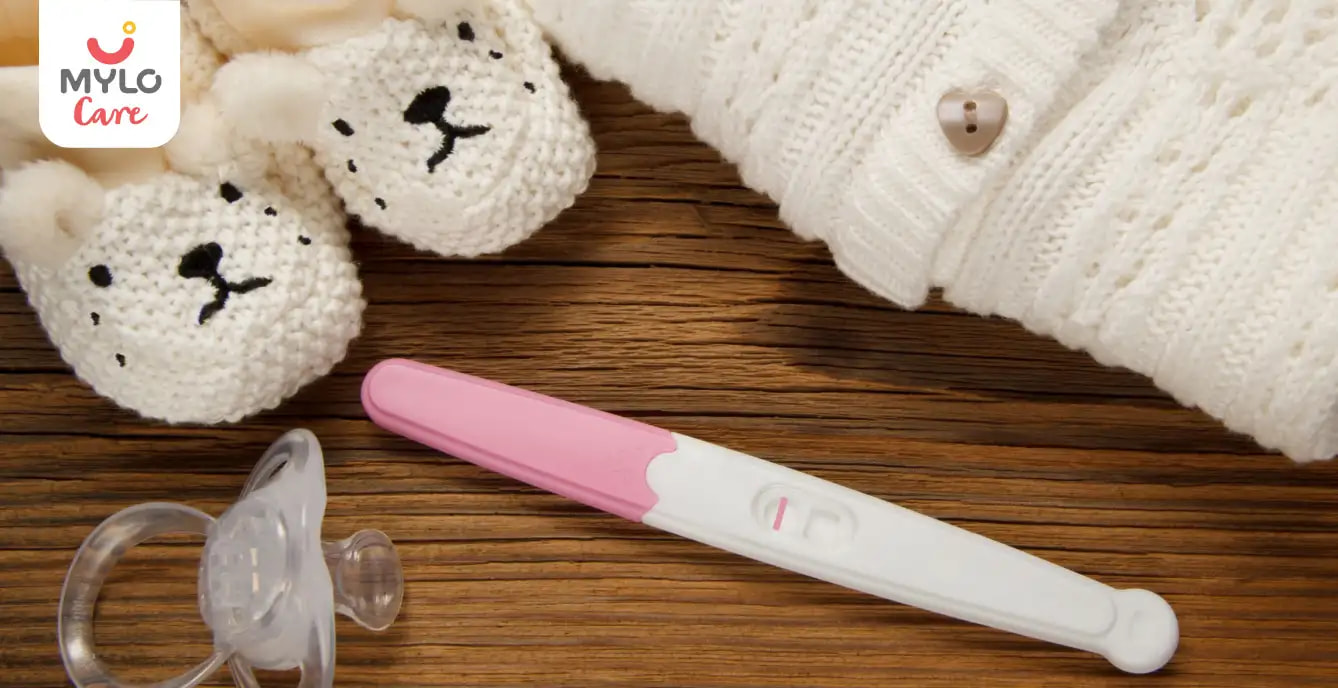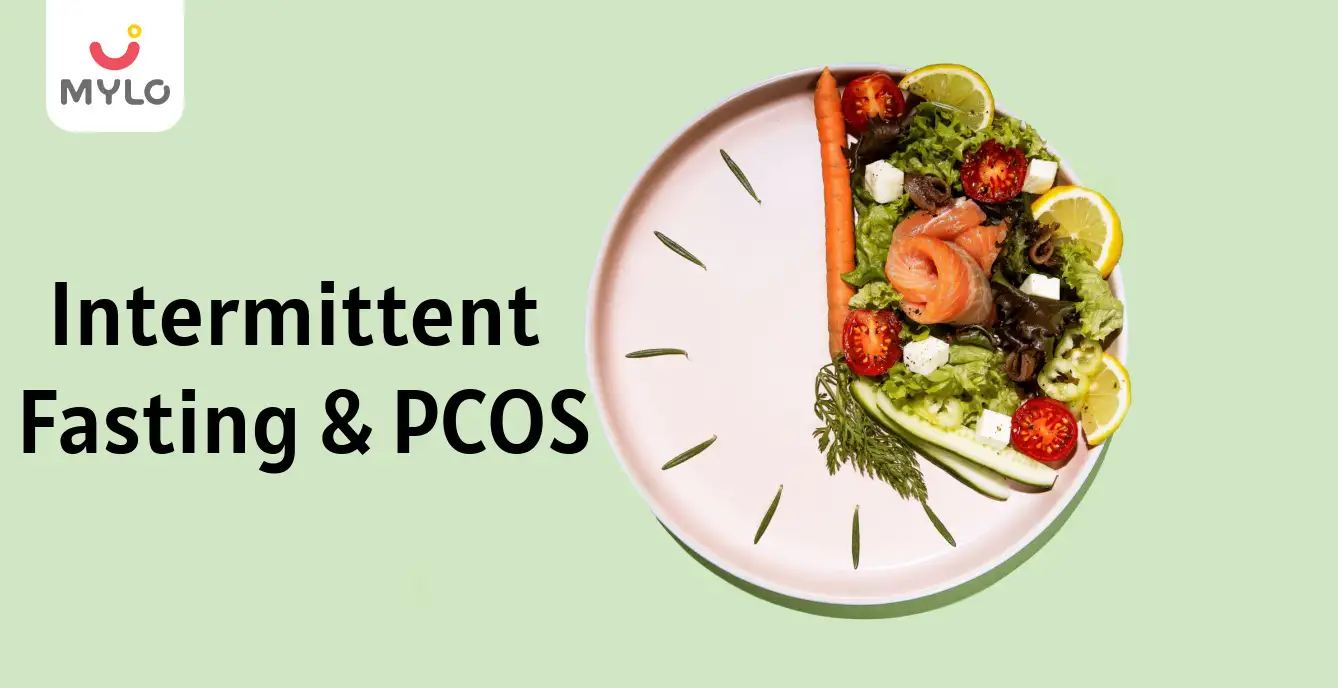Home

PCOS & PCOD

The Ultimate Guide on How to Get Pregnant with PCOD
In this Article

PCOS & PCOD
The Ultimate Guide on How to Get Pregnant with PCOD
Updated on 26 December 2023
Polycystic Ovary Disease (PCOD) is a common hormonal disorder that affects many women of reproductive age. One of the biggest concerns for women with PCOD is their fertility. Many wonder can people with PCOD get pregnant or is PCOD problem for pregnancy. In this article, we will explore the relationship between PCOD problem and pregnancy and provide you with 10 tips on how to get pregnant with PCOD.
Understanding PCOD and its impact on fertility
PCOD affects the functioning of the ovaries and can lead to irregular menstrual cycles, excessive hair growth, weight gain, and acne. It can also have a significant impact on a woman's fertility. When a woman has PCOD, her ovaries may not release eggs regularly or at all. This makes it difficult for her to conceive naturally.
What are the factors affecting fertility in PCOD?
There are several factors that can affect fertility in women with PCOD. Understanding these factors can help you take appropriate steps to improve your chances of getting pregnant.
1. Hormonal imbalances
PCOD is characterized by hormonal imbalances, including elevated levels of insulin and androgens. These imbalances can disrupt ovulation and affect the quality of the eggs.
2. Irregular menstrual cycles
Women with PCOD often have irregular periods, making it difficult to predict ovulation and time intercourse for conception.
3. Poor egg quality
PCOD can lead to poor egg quality, which reduces the chances of successful fertilization and implantation.
You may also like: Improve Egg Quality in 30 Days: The Ultimate Guide to Boosting Your Fertility Naturally
4. Obesity
Excess weight can worsen PCOD symptoms and decrease fertility. Losing weight can improve hormonal balance and increase the chances of getting pregnant.
5. Insulin resistance
Many women with PCOD also have insulin resistance, which can affect fertility. Managing insulin levels through diet and exercise can improve fertility outcomes.
What is the relation between PCOD problem and pregnancy?
The relation between Polycystic Ovarian Disease and pregnancy is complex. While PCOD can make it more challenging to conceive, it does not mean that pregnancy is impossible. With proper management and lifestyle changes, many women with PCOD are able to get pregnant and have a healthy baby.
PCOD affects fertility primarily by disrupting ovulation. When the ovaries do not release eggs regularly, it becomes difficult to time intercourse for conception. Additionally, hormonal imbalances associated with PCOD can lead to other fertility issues, such as irregular periods and poor egg quality. However, with the right approach, these challenges can be overcome.
Can I get pregnant with PCOD?
Yes, it is possible to get pregnant with PCOD. While PCOD may make conception more difficult, there are various treatment options available that can increase your chances of getting pregnant. It's important to consult with a healthcare professional who specializes in fertility to discuss your individual situation and develop a plan tailored to your needs.
One common approach to improving fertility in women with PCOD is through lifestyle changes. Maintaining a healthy weight, eating a balanced diet, exercising regularly, and managing stress can all have a positive impact on fertility. In some cases, medications or assisted reproductive techniques may be recommended to support ovulation and increase the chances of pregnancy.
You may also like: How to Get Pregnant with PCOS: The Ultimate Guide for Women
How to get pregnant with PCOD?
If you're trying to conceive with PCOD, here are 10 tips that can help increase your chances of getting pregnant:
1. Maintain a healthy weight
Losing weight if you're overweight or gaining weight if you're underweight can improve your chances of getting pregnant.
2. Eat a balanced diet
Focus on consuming a variety of nutritious foods, including fruits, vegetables, whole grains, lean proteins, and healthy fats. Avoid processed foods and sugary snacks.
3. Exercise regularly
Engaging in moderate exercise, such as brisk walking or swimming, can improve fertility and help regulate your menstrual cycle.
4. Manage stress
High levels of stress can negatively impact fertility. Explore stress management techniques such as meditation, yoga, or therapy.
5. Track your menstrual cycle
Monitoring your menstrual cycle can help you identify when you're most fertile and increase your chances of conceiving.
6. Consider fertility treatments
Depending on your specific situation, your healthcare provider may recommend fertility treatments such as ovulation induction or in-vitro fertilization (IVF).
Women searching for non-hormonal or non-surgical treatment options for PCOS can also consider Mylo's chewable Myo-inositol tablets, which are fortified with Quatre Folic and Vitamin D and can help promote hormonal balance and overcome common as well as specific PCOS/PCOD challenges.
7. Quit smoking and limit alcohol consumption
Smoking and excessive alcohol intake can decrease fertility. Quitting smoking and reducing alcohol consumption can improve your chances of getting pregnant.
8. Take prenatal vitamins
Prenatal vitamins containing folic acid and other essential nutrients can support reproductive health and increase fertility.
9. Consult with a fertility specialist
Working with a fertility specialist who specializes in PCOD can provide you with personalized guidance and treatment options.
10. Stay positive and patient
Remember that getting pregnant may take time, and it's important to stay positive and patient throughout the journey.
Key Takeaways
Getting pregnant with PCOD may require some additional effort and lifestyle changes, but it is definitely possible. Understanding the impact of PCOD on fertility, making appropriate lifestyle modifications, and seeking expert guidance on how to get pregnant with PCOD can greatly increase your chances of conceiving. Remember to stay positive, take care of your health, and be patient with the process.
References
1. Dennett CC, Simon J. (2015). The role of polycystic ovary syndrome in reproductive and metabolic health: overview and approaches for treatment. Diabetes Spectr.
2. McDonnell R, Hart RJ. (2017). Pregnancy-related outcomes for women with polycystic ovary syndrome. Womens Health (Lond).
3. Cunha A, Póvoa AM. (2021). Infertility management in women with polycystic ovary syndrome: a review. Porto Biomed J.



Written by
Anupama Chadha
Anupama Chadha, born and raised in Delhi is a content writer who has written extensively for industries such as HR, Healthcare, Finance, Retail and Tech.
Read MoreGet baby's diet chart, and growth tips

Related Articles
Related Questions
Hello frnds..still no pain...doctor said head fix nhi hua hai..bt vagina me pain hai aur back pain bhi... anyone having same issues??

Kon kon c chije aisi hai jo pregnancy mei gas acidity jalan karti hain... Koi btayega plz bcz mujhe aksar khane ke baad hi samagh aata hai ki is chij se gas acidity jalan ho gyi hai. Please share your knowledge

I am 13 week pregnancy. Anyone having Storione-xt tablet. It better to have morning or night ???

Hlo to be moms....i hv a query...in my 9.5 wk i feel body joint pain like in ankle, knee, wrist, shoulder, toes....pain intensity is high...i cnt sleep....what should i do pls help....cn i cosult my doc.

Influenza and boostrix injection kisiko laga hai kya 8 month pregnancy me and q lagta hai ye plz reply me

RECENTLY PUBLISHED ARTICLES
our most recent articles

Menstrual Cycle
What Can Be the Maximum Delay in Periods If Not Pregnant?

Black Period Blood: Is It Normal or a Cause for Concern?

PCOS & PCOD
Lean PCOS: A Comprehensive Guide on Causes, Symptoms and Treatment

Mood Swings
PCOS Mood Swings: The Ultimate Guide to Causes and Strategies for Relief

PCOS & PCOD
PCOS and Thyroid: Understanding the Complex Relationship and Finding Solutions

PCOS & PCOD
Intermittent Fasting & PCOS: The Ultimate Guide to Benefits, Risks and Precautions
- Insulin Resistance & PCOS: A Comprehensive Guide to Causes and Management
- Your heart stops beating when your baby feels breathless! Here are 5 things to know about infant breathlessness.
- Newborn Crying: What It Means and How to Handle It?
- When Do Babies Make Eye Contact: Keeping an Eye on Important Milestones
- Is your baby getting breathless frequently? Five things you must know
- 50 Budget-Friendly Birthday Return Gift Ideas to Wow Your Guests
- PCOS Exercise: Your Guide to Sweating Away PCOS
- PCOS and Pregnancy: How to Manage PCOS on the Path to Parenthood
- PCOS Tests: The Power of Diagnostic Tests in Your Health Journey
- Must-Read Ruskin Bond Short Stories for Little Minds
- The Top 10 Tenali Raman Stories You Must Read to Your Kids
- Ovulation Bleeding: The Ultimate Guide to Causes, Symptoms and Management
- A Guide to Recognizing Symptoms of Ovulation After HCG Injection
- Bulky Ovaries Explained: What Every Woman Should Be Aware Of


AWARDS AND RECOGNITION

Mylo wins Forbes D2C Disruptor award

Mylo wins The Economic Times Promising Brands 2022
AS SEEN IN

- Mylo Care: Effective and science-backed personal care and wellness solutions for a joyful you.
- Mylo Baby: Science-backed, gentle and effective personal care & hygiene range for your little one.
- Mylo Community: Trusted and empathetic community of 10mn+ parents and experts.
Product Categories
baby carrier | baby soap | baby wipes | stretch marks cream | baby cream | baby shampoo | baby massage oil | baby hair oil | stretch marks oil | baby body wash | baby powder | baby lotion | diaper rash cream | newborn diapers | teether | baby kajal | baby diapers | cloth diapers |




